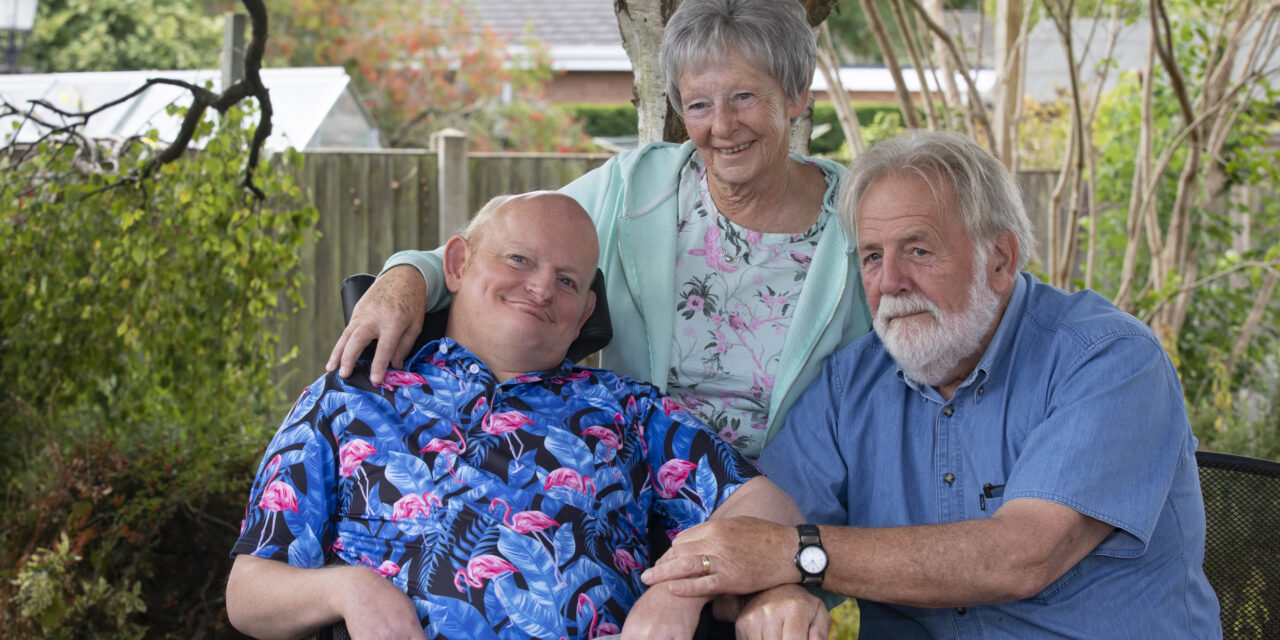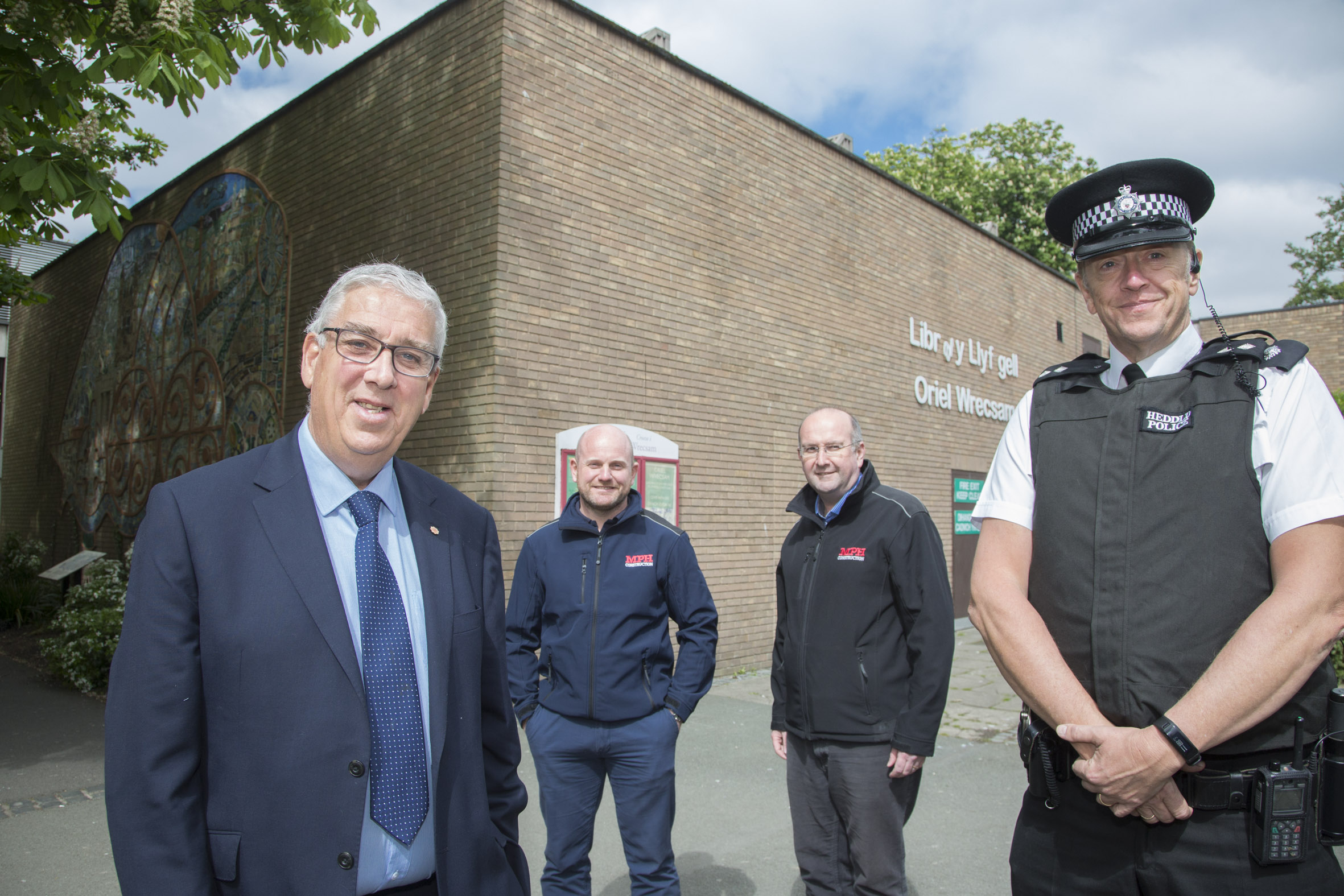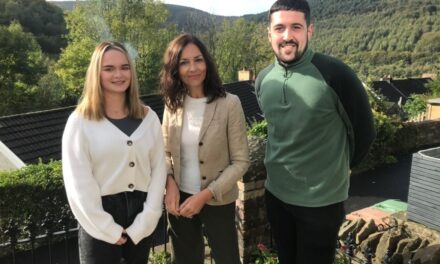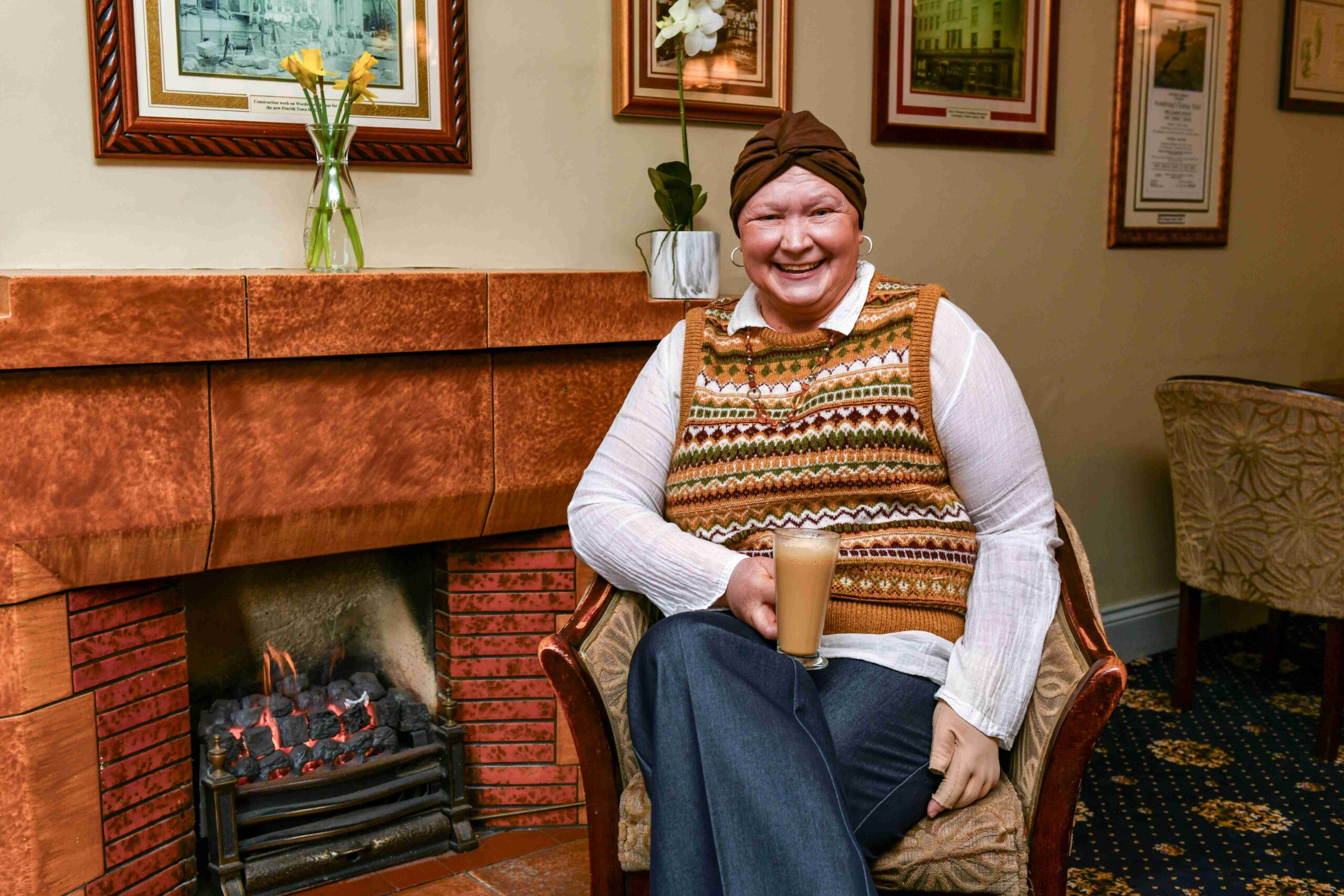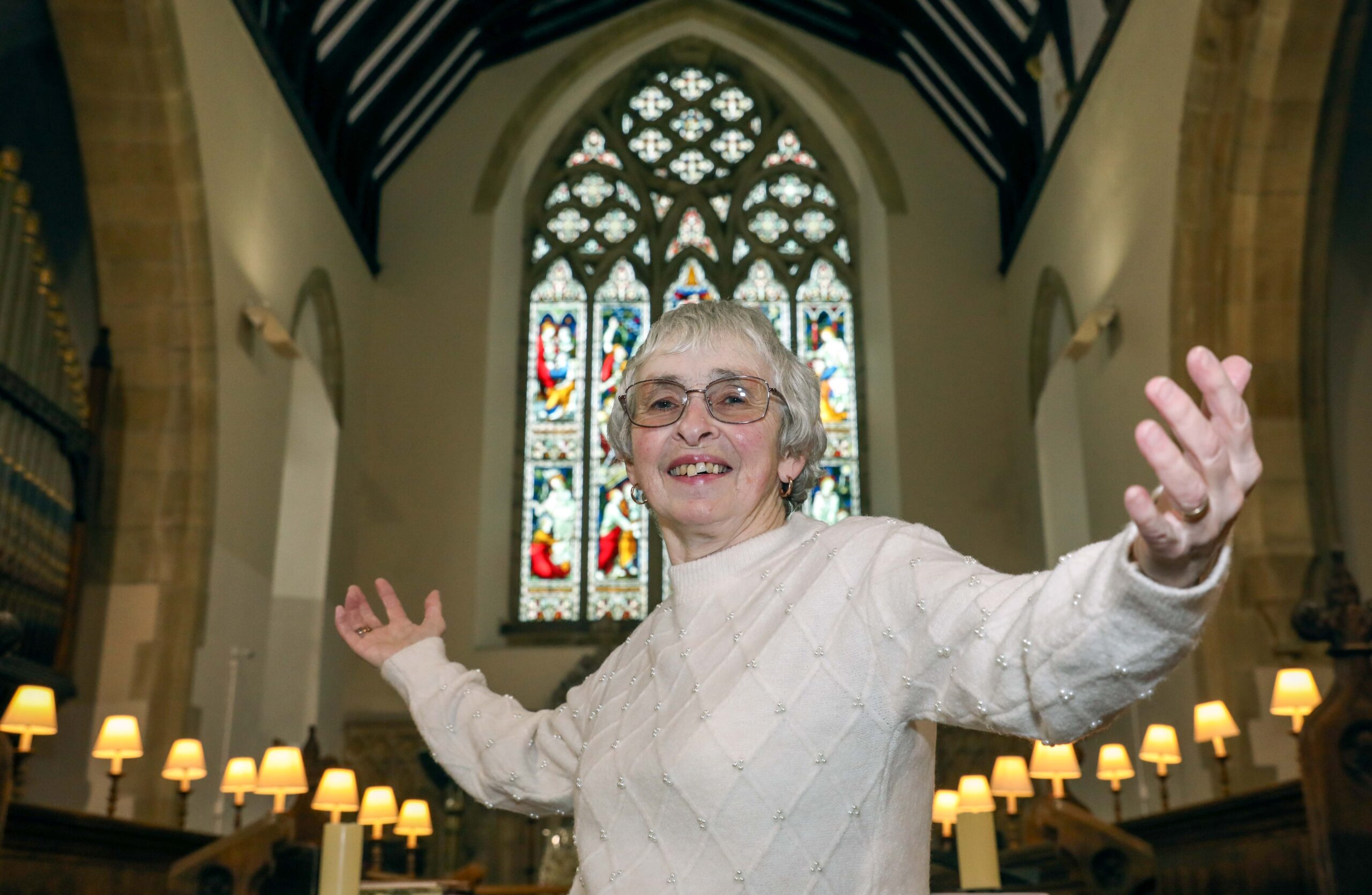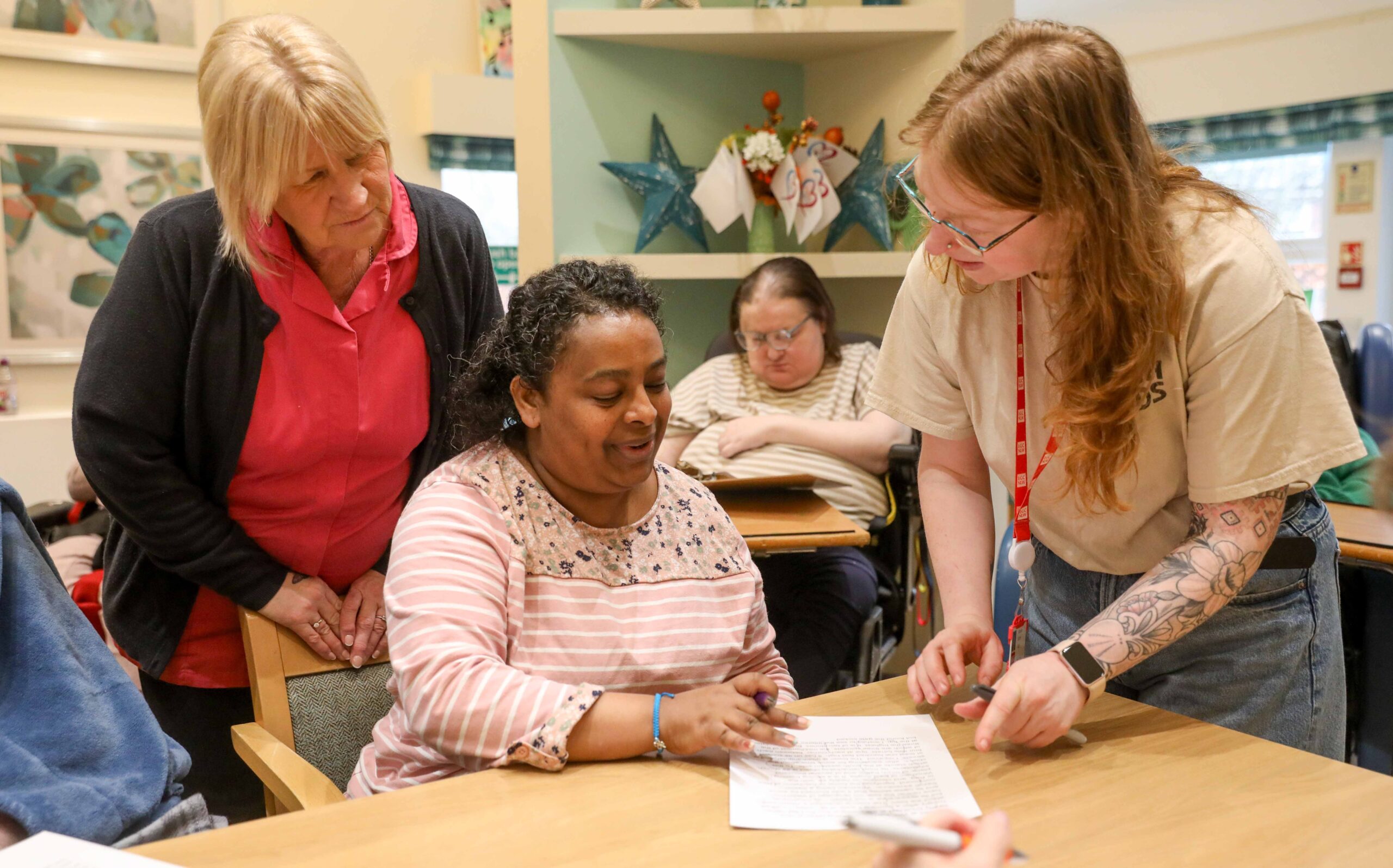A devoted Wrexham couple say they fear for their severely disabled son’s future care if a North Wales charity fails to survive a funding crisis.
Anheddau, which supports 140 disabled people in Gwynedd, Conwy, Anglesey, Denbighshire and Wrexham, is teetering on the financial brink with 400 jobs also at risk
The news has alarmed Sheila and Mike Meadows whose son Gareth, 46, receives daily support from Anheddau care staff in Wrexham – helping him live a “full and meaningful life”
The root of the problem is that the charity is facing an additional annual bill of £400,000 because of the increase in the National Insurance employers’ contribution and the rise in the Real Living Wage.
According to Anheddau, it’s facing a “ticking timebomb” over the funding and says it may be forced to consider making redundancies in October unless local authorities provide a rescue package to cover its additional costs.
Families which the organisation helps are calling for the councils to provide the necessary funding to the charity, which has been supporting people with autism, learning disabilities, mental health and other needs for more than 35 years.
Gareth has Angelman Syndrome, a rare condition which causes severe physical and learning difficulties.
He has lived in Wrexham’s supported living project for 17 years and shares a house with others who have disabilities.
Sheila said living away from the family home with support from Anheddau has given Gareth a level of independence he would otherwise not have.
She urged councils to provide the charity with the funds it needs to ensure its “amazing” care of clients such as Gareth can carry on.
Sheila said Gareth had been supported by the charity for about 18 months, and before that the care was given by other organisations – with mixed results.
She said Gareth lived at home with her and Mike and their two other sons until he was 29.
She said: “We were happy to have him at home but once his brothers left home we felt that Gareth needed more stimulation and we felt we had to prepare him for the future.
“Gareth is confined to a wheelchair now and he is not very mobile.
“And he has learning difficulties – he has no speech, he has been hugely disabled from birth.
“His condition has had a devastating effect on him, but I know he is very happy now.
“Anheddau provides the majority of his care in his house, with that care being commissioned by the local authority.
“In the house there is 24-hour care so they have a team who supports the guys who are there.
“Gareth currently lives with another housemate, and there will hopefully be a third person joining them soon.
“The Anheddau team does everything for them – they help them get up in the morning, they help Gareth with breakfast because he can no longer feed himself, they are absolutely amazing.
“They bathe them, they help them wash their clothes and take them out to do things to keep them stimulated and happy.
“Anheddau have fantastic principles, they have a strong ethos of helping people live full and meaningful lives in their community.
“The quality of their care, and the training they give their staff, is superb.”
Anheddau’s Chief Executive Claire Higgins warned the charity’s plight was now dire.
She said: “We’ve made enormous efficiencies within the organisation but we’re still in need of that additional funding commitment from the local authorities.
“I have given them until the end of September to give me that commitment, because that is the point where I need to make a decision about the future of the organisation. That’s the bleak position we are in. If we have to close, then October is when we have to start the redundancy consultation with staff.
“If we make redundancies we will be able to keep ticking over, but it’s hand-to-mouth for us now. And if we do get through to April, I hope there will be no more tax increases.”
Claire explained the charity was facing an 11 per cent deficit in its costs and said an 8.8 per cent increase in funding from the local authorities is the minimum it needs to survive.
She added: “Necessarily, we’ve been advocating strongly with local authorities. I am hopeful. But by the end of September if the councils say ‘no’, the only way we can survive is by making redundancies. Then it will be incredibly tight next year and can we continue after April is going to be the big question.”
Mario Kreft MBE, chair of Care Forum Wales, said Anheddau’s financial crisis was another example of the funding challenges faced across the independent social care sector.
He said: “Worryingly, Anheddau’s plight is far from unique because the very same issues are affecting all independent social care providers in Wales.
“The 37 per cent increase in the cost of National Insurance employers’ contribution is hitting social care particularly hard.
“As a policy it’s counterintuitive and doesn’t make any sense because it’s hitting social care particularly hard and when social care sneezes the NHS catches a cold.
“Unless local councils find additional funding, we are facing a major catastrophe that is going to affect thousands of vulnerable people in every corner of the nation.

